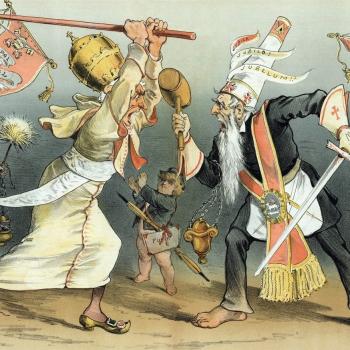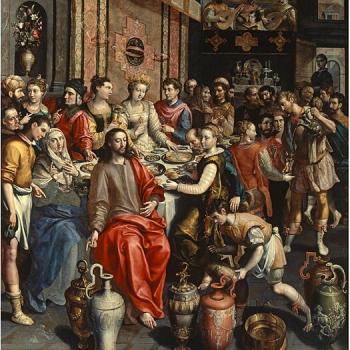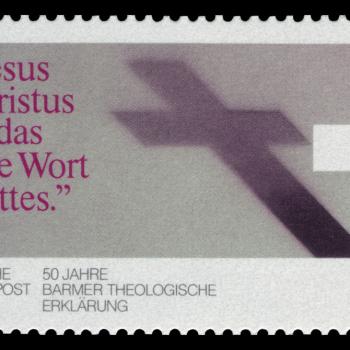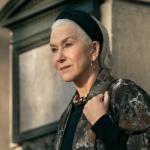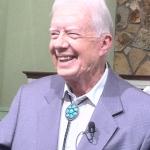Facts vs. Faith?
Last evening I watched a few episodes of the TV series “Young Sheldon.” I have always guiltily enjoyed “The Big Bang Theory” in spite of the hedonism of some of its characters. I was talked into watching “Young Sheldon” because I had shied away from it, suspecting the writers would, as they indeed did, pit religion against science.
In one scene, in a church, probably Southern Baptist (because of where Sheldon and his TV family lived then), the pastor makes a statement from the pulpit and Sheldon, only about 10 years old, raises his hand in the congregation, much to his family’s chagrin, and challenges the pastor’s statement. The pastor, portrayed as a doofus, invites Sheldon to come up to the front of the sanctuary for a conversation.
To make a long story short, Sheldon (the writers of the show putting the words in the child actor’s mouth) states unequivocally that he believes in science, not God because science is about facts and religion is only about faith (I’m paraphrasing). That seems to stump the pastor.
Now, first of all, I wish TV show and movie makers would do as much homework about religion, if they are going to include it, as they do about science, if they are going to include it. No seminary graduate pastor would allow Sheldon’s pitting of religion and science against each other in that way to go without comment. This “religion is about faith while science is about facts” is a cliche that has been around since at least the time of David Hume and strongly promoted by liberal German theologian Albrecht Ritschl and his disciples. It entered into the stream of popular “theology” even though both David Hume and Ritschl nuanced it quite a bit. I can’t count how many times I have head it said as “fact.”
Well, the FACT is that most religious people believe what they believe is factual. That is not the difference between religion and science. If young Sheldon had said that science is about provable facts while religion is about unprovable facts, at least that would be a valid conversation starter and not just a cliche.
But let’s look a bit deeper into this often quoted cliche. Even David Hume argued that cause and effect is a common (justified) belief that is not provable. This launched Immanuel Kant to awaken from his “dogmatic slumbers” and embark on a philosophical project that ended up showing (to his satisfaction) that cause and effect is fact but only because the mind operates that way on the raw data taken in by the senses. So it is not a fact, so far as we can know, in the noumenal realm of things in themselves.
My complaint here is not about the actor playing Young Sheldon; it is about the writers of the show who, like the writers of The Big Bang Theory (and I have seen all episodes of it at least twice!), have not done their homework about religion. At least not about Christianity. In a few episodes Judaism is treated fairly as is Hinduism. The Adult Sheldon in the Big Bang Theory NEVER attacks Jewish faith or Hindu faith (two of his “posse” are members of the Jewish and Hindu faiths). But he frequently ridicules his mother’s Christian faith as do the writers by what comes out of her mouth.
Is it true that science has facts while religion has faith and that the two are in competition with science rising above religion BECAUSE it has facts while religion has only faith? That is a question that has been much discussed, mainly by theologians and religious philosophers. My own theology professor Wolfhart Pannenberg fought against that notion with all his might. As have many winners of the Templeton Prize, the largest scholarly prize in the world. I was blessed to meet, have dinner with, engage in conversation with John Polkinghorne, Anglican priest and Cambridge physicist who most definitely did NOT believe religion and science are competitors.
I recommend that people who want to look deeper into the issue turn to the Veritas Forum which you can find on Youtube—lectures and interviews by leading Christian philosophers, theologians and scientist, all highly credentialed and concerned to wipe away the bias that religion and science are competitors with science dealing only in facts and religion dealing only in faith.
It is simply a FACT that religion is NOT only about faith, not facts. The facts believed by many religious people may be false and therefore, not real facts, but the point is that the goal of most religion is to discover and follow and believe in facts. Certainly the epistemologies of modern science and religion differ somewhat, but numerous leading scientists including Francis Collins, former director of the National Human Genome Research Institute, believe that religion and science both deal with facts even if differently and that they are no in any necessary competition.
Back to my annoyance. Writers of TV shows and movies almost always treat religion, especially Christianity, as either non-existent where, given the historical and geographical context it should be present and shown, or as stupid. EXCEPT Judaism (see episodes of The Wonder Years and All Creatures Great and Small) and Buddhism (see an episode of Madame Secretary). An exception is, of course, Call the Midwife, but even there I have noticed some strange anomalies where Catholicism appears in the Anglican convent. However, in Call the Midwife two characters lead a Caribbean based church. I only wish the makers of Call the Midwife had actually asked someone what songs these people would actually sing. Probably not “How Great Thou Art.”





